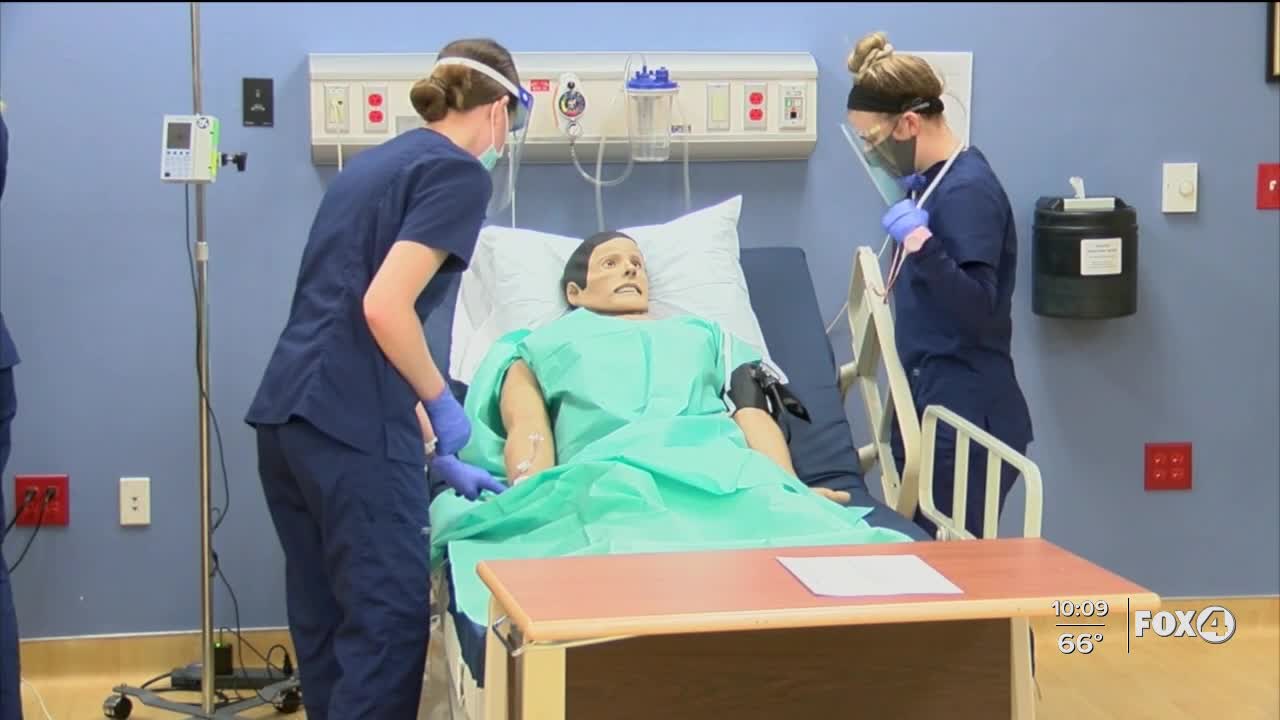FORT MYERS, Fla. — Helping patients through tough times is just a smidge of what nurses do. However, for those looking to enter the career field, getting started can be tough, and when you add in learning how to care for patients with COVID - 19, the mission to save lives takes on a whole new meaning and purpose.
“To get them to think about this from a nursing perspective, and what it is their role is going to be when they graduate and land their first nursing job,” said Kelly Goebel, B.S.N. Program Director at Florida Gulf Coast University's School of Nursing.
Kelly Goebel B.S.N. Program Director at Floridas Gulf Coast University’s School of Nursing says, it's been a challenge getting her students ready for the COVID-filled hospital floors.
“We’ve had to teach a little more about P.P.E and how you put on the masks, and the face shields, and how you gown up if you were, in fact, to come in contact with a COVID patient,” said Goebel.
Transitioning from remote scenarios and virtual nursing simulations Goebel says bringing students back into the classroom for face-to-face learning was best. However, the most challenging portion of the curriculum is teaching students how to handle the most difficult part about the job, brought on by the pandemic.
“A very big part that’s emotional for students to understand and families to understand is that they can’t be at the bedside with their loved ones, and so we try and relay those kinds of scenarios, so they are ready for that. It's also a whole different way of managing patients, they are sicker, the protocols are different they are ever-changing,” said Goebel.
2nd-semester nursing student Austin Gandia says while the classroom learning experience has been a bit different, he’s had the opportunity to save lives outside a simulation.
“Me and about 8 other B.S.N students gave about 300 COVID vaccines, that was our first chance at interacting with patients, talking with them. I just get so excited every time I talk about it like this is what I’m meant to be doing,” said Austin Gandia.
Moving forward Gandia says, the reward for him and his classmates is knowing they are going into the world to save lives.
“I can assure you that day when you do end up taking that first step into a hospital and talking to your first patient, man, it’s going to be something that you're going to remember for the rest of your life,” said Gandia.




